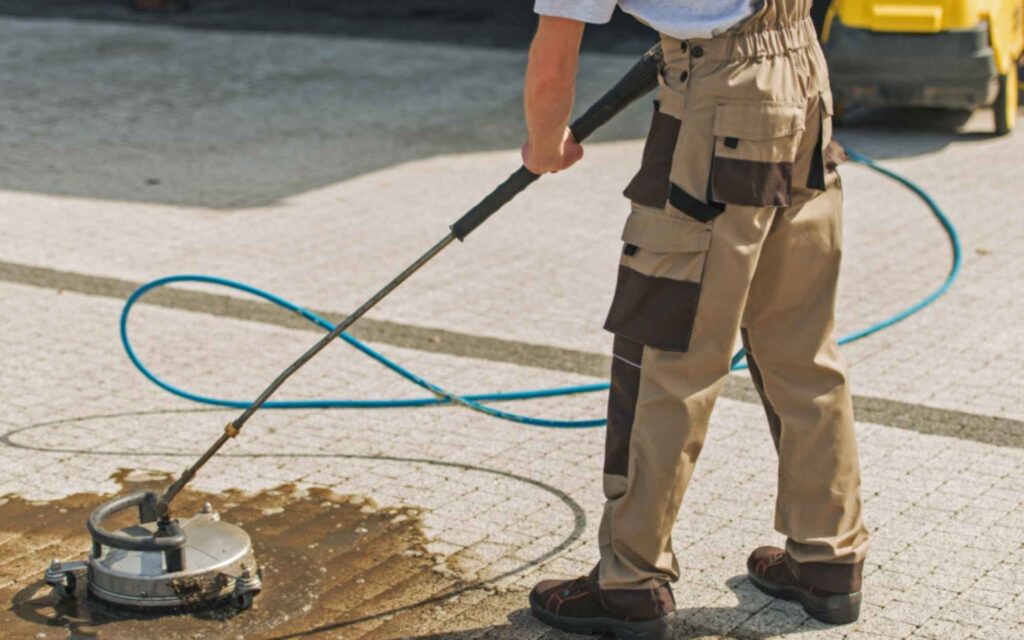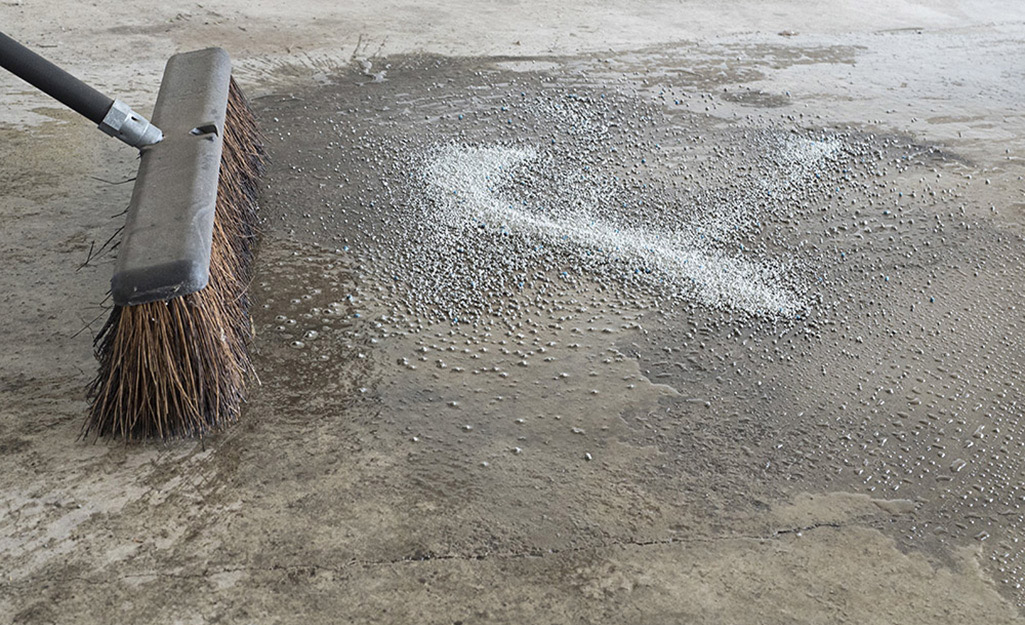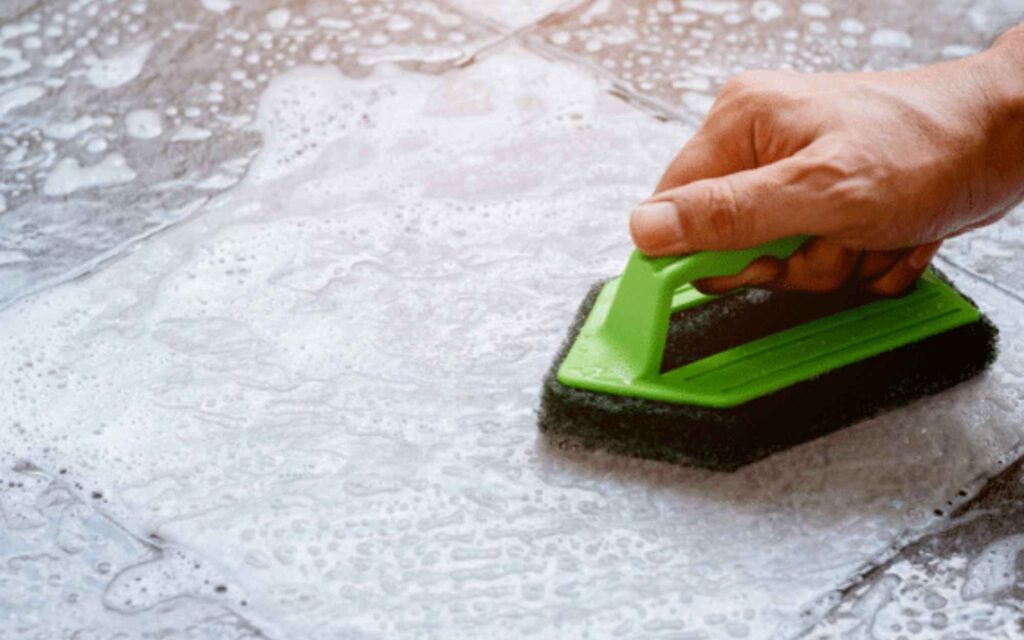Oil spills on your garage floor are more than just an eyesore — if left untreated, they can weaken the concrete and cause permanent stains. Whether it’s from a leaking car or an accidental spill during an oil change, knowing how to clean oil off a concrete garage floor quickly and effectively can save you time and money.In this blog, we’ll explore home garage solutions, DIY and commercial cleaning options, and tips to prevent future stains — all based on practical experience.

Everyday Oil Spills on Concrete Garage Floors
If you use your garage regularly, oil stains are almost inevitable. Common sources include:
- Motor oil leaks from cars
- Lawn mower or snowblower oil
- Bicycle maintenance messes
- Accidental drops during home vehicle servicing
Concrete is porous, so oil seeps in fast — especially if the floor isn’t sealed. That’s why fast action is critical.
Home Garage Solutions That Actually Work
Before you run to the store, check your home for some simple DIY cleaning agents. You may already have what you need to tackle a fresh oil spill.
Household Items for Fresh Spills
- Kitty litter: Great for soaking up fresh oil. Let it sit 24 hours, then sweep it off.
- Baking soda or cornstarch: Apply generously over the oil, wait 30 mins, then scrub with a stiff brush.
- Dish soap and hot water: Use a degreasing dish soap (like Dawn), scrub hard, and rinse.
- White vinegar: Works better for light stains and odor, not heavy-duty oil.
🔧 Pro Tip: Always blot the oil first. Never scrub fresh oil directly — you’ll drive it deeper into the concrete.
DIY & Commercial Cleaners Compared
When DIY Works
For fresh spills and light stains, home remedies are often enough — especially if you act quickly.
When to Go Pro
If the oil has been sitting for a few days or more, DIY may not cut it. That’s when you need:
- Concrete-safe degreasers
- Enzyme-based cleaners
- Heavy-duty scrub brushes
- Pressure washers
🧴 Read more: Best Products to Remove Oil Stains from Concrete

Preventing Repeat Oil Stains in Your Garage
1. Use Absorbent Mats or Drip Trays
Place these under cars or machinery that tend to leak. They catch oil before it hits the concrete.
2. Seal Your Garage Floor
Unsealed concrete absorbs oil quickly. A good penetrating or acrylic sealer keeps oil on the surface, making cleanup easier.
🔒 Want protection tips? Read: Can Sealing Concrete Help Avoid Future Oil Stains?
3. Clean Up Immediately
The sooner you remove the oil, the less likely it becomes a permanent stain.
FAQs
Q1: How do I clean up oil that’s just spilled on the garage floor?
Blot the oil with rags or paper towels. Then cover it with kitty litter or baking soda to absorb any residue. After a few hours, scrub with dish soap and rinse.
Q2: Can I use kitty litter or baking soda to remove oil stains?
Yes — kitty litter works best for fresh spills by soaking up the oil. Baking soda is better for scrubbing and removing leftover residues.
Q3: Will sealing the concrete floor help prevent future stains?
Absolutely. Sealing fills the pores in the concrete so oil can’t penetrate, making cleanup faster and preventing deep stains.
🔒 Read more about sealing your concrete
Garage Floor Topcoat: Is It Worth It?
For long-term protection and easy cleaning, applying a garage floor epoxy or polyaspartic coating can:
- Repel oil and chemicals
- Make sweeping and mopping easier
- Extend the life of your concrete



